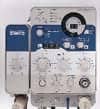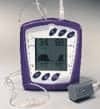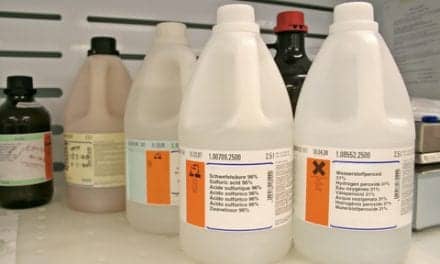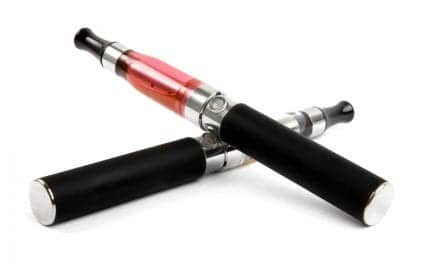Respiratory Care in Pakistan: The country’s first RT describes his work at Shaukat Khanum Memorial Cancer Hospital and Research Center.

My country, Pakistan, was born in 1947 when British rule ended. In 1971 Pakistan’s eastern wing emerged as an independent country, Bangladesh, following a brief civil war. From 1947 to 1988, Pakistan had three military takeovers. Since 1988, the country has experienced a series of interim and elected governments that ended with the last military takeover in 1999. These historical facts help explain the persistent political instability that has adversely affected Pakistan’s health sector.
The Shaukat Khanum Memorial Cancer Hospital and Research Center (SKMCH&RC) opened on December 29, 1994. It was founded by the famous Pakistani cricket player, Imran Khan, in honor of its namesake, his mother, who died of cancer. Among Pakistan’s 140 million people, an estimated 100,000 to 200,000 new cases of cancer are diagnosed annually. Prior to the establishment of SKMCH&RC, no comprehensive facility dedicated to the diagnosis and treatment of cancer existed in Pakistan. SKMCH&RC was established to provide the best possible cancer treatment to all patients, regardless of their ability to pay. Over the past 6 years, about 80% of all its patients have been treated entirely free of cost.
The hospital has up-to-date facilities for training and research in oncology. It was designed by an international team of experts in both medicine and architecture. The facility was planned as a center of excellence equipped and operated to the highest international standards. Management has designed hospital operations using the standards of the United States’ JCAHO as a benchmark. Funded entirely by the donations of more than 1.2 million people, the project has received widespread support both at home and abroad.
The hospital is a project of Shaukat Khanum Memorial Trust, a nonprofit legal entity. The hospital’s Board of Governors consists of bankers, researchers, businesspeople, and physicians who formulate policy ensuring that access is provided to the maximum number of poor patients. The hospital is currently involved in several research projects, mainly involving cancer drug research, patient treatment outcomes, and epidemiology studies. SKMCH&RC is affiliated with some of the world’s most prestigious cancer hospitals, which assist in training personnel and providing collaboration on the latest innovations in cancer treatment and research. These affiliations include the University of Kentucky College of Medicine, Lexington.

Clinical departments include medical oncology, pediatric oncology, radiation oncology, surgical services, internal medicine and allied services, anesthesiology, radiology, pathology, and nuclear medicine. Ancillary medical departments are pharmacy, nursing, education (nursing and paramedical), medical records, physiotherapy, clinical psychology, clinical nutrition, respiratory therapy, the ICU, and the central sterilization supply department. The hospital has long relied on western health care models, primarily from the United States and Great Britain, to manage patient care and its administrative affairs. The SKMCH&RC delivers world-class care, featuring some of the finest equipment and top physicians and ancillary staff from the United States, England, Australia, and the Philippines. It has 72 inpatient beds, seven ICU beds, and 24 chemotherapy beds. Full-time intensivists, ICU nurses, and respiratory therapists run the ICU.
SKMCH&RC is the only hospital in the country with formal qualified respiratory therapists. All the major hospitals in the country, in both the government and the private sectors, have ICUs and offer all kinds of services, but they do not have formal respiratory therapists. The result is that more respiratory complications occur while providing the required aids to the patients. In many hospitals, they are unable to manage postoperative atelectasis after laparotomy and thoracic surgery simply because the staff is not aware of the therapies and the instruments used to treat it. Many intensivists complain about delayed weaning of patients from mechanical ventilation due to a lack of RTs. Others complain about management of patients with COPD. The main problem is their inability to ensure proper assessment of patients, delivery of therapy, and monitoring of responses to treatment—and thus shortened hospital stays. Staff responsible for respiratory care differ in various settings. In some hospitals, nursing staff handle ventilators, postoperative complications, arterial blood gases, and nebulization, while in others the doctors perform these duties, especially handling the ventilators in the ICU.
I joined SKMCH&RC in 1996 as an on-the-job trainee respiratory therapist. It was the idea of Nausherwan Burki, MD, PhD, professor of medicine at the University of Kentucky, Lexington, to have RTs at SKMCH&RC. I received internal training for 2 years. This was a tough time for me, having no model to guide me and no recognized institution around me. The interesting job description and my dedication to this profession encouraged me to continue studies.
In 1999, I was admitted into a distance- learning Associate of Science degree program in advanced respiratory therapy at the California College for Health Sciences (CCHS), National City, Calif. It was once again an uphill task to complete the study requirements in my hospital. While studying, I worked an 8-hour shift; later, my shift was increased to 15 hours with 1 day off every 7 days. Topics for my research papers—such as ECMO and the intra-aortic balloon pump—were interesting, but it was extremely hard to find recent studies on them in our library. Since I had the full support of the hospital administration, they made every attempt to facilitate my efforts. During this period, I visited various other hospitals to observe patient care and complete my study requirements. I graduated successfully in May 2003 and became the first RT in the country holding a recognized degree.
With four other colleagues, I work under an intensivist in three shifts. In the ICU we do not have respiratory therapist-driven protocols (TDPs). We are trying to implement these in the ICU, but we face stiff resistance from our intensivists. In other departments, among them surgery, medical oncology, and pediatric oncology, we have developed TDPs for such therapies as oxygen therapy, chest physiotherapy, nebulization, and incentive spirometry. In many cases the physicians request an RT to consult with their patients, but it is difficult to serve the whole hospital with two RTs per shift, and, to lessen the burden on RTs, we have begun a continuous staff education program. It includes a monthly workshop on basic cardiac life support, airway management, and oxygen therapy. We have an introduction and orientation program, in which the role of the RT in the hospital setting is explained to the nursing staff. The idea of respiratory care in the home setting does not exist in Pakistan.
Other hospitals in the country also ask for our services, but we cannot travel extensively due to the heavy workload in our hospital. Our ICU is well equipped with modern monitors, ventilators, infusion pumps, and other necessary devices, but still lacks much of the equipment used for hemodynamic monitoring. We try to manage our patients without having a pulmonary function testing laboratory. Our medical library does have many journals, but only a few for RTs.
Despite all these difficulties, my colleagues and I work with a great interest. We are the pioneers in respiratory therapy in this country. We are determined to set a solid foundation for RTs here. Our idea for establishing a respiratory therapy department has been well supported by our administration. Once established, it would serve as a model for other hospitals. Our services have been requested in advance by many administrators from different hospitals. I look forward to receiving suggestions from you.
Nazir Alam Burki, RRT, is a respiratory therapist at Shaukat Khanum Memorial Cancer Hospital and Research Center; PO Box No. 2072, Lahore, Pakistan; 0092-42-5180725, ext 2316; [email protected].










